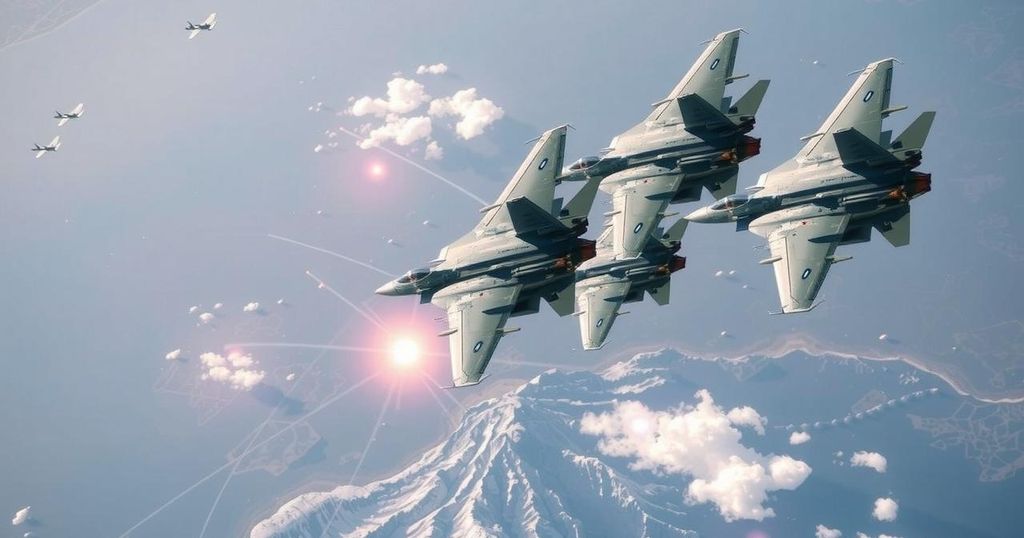Israel’s Air Force has attained unprecedented air superiority in the Middle East following the collapse of Syria’s regime, allowing for unhindered operations near Iran’s borders. With advanced capabilities and the demolition of Syrian air defenses, the IAF is positioned to target threats efficiently. The ongoing military developments showcase a pivotal moment in regional security, asserting Israel’s dominance while foreshadowing future challenges.
Israel’s Air Force (IAF) has established itself as the predominant aerial power in the Middle East, significantly enhancing its operational capabilities, especially following the collapse of the Assad regime in Syria. This geopolitical shift has permitted Israel to conduct airstrikes with unprecedented freedom, moving close to the Iranian border without facing serious opposition. Analysts have noted the IAF’s ability to target adversaries effectively, undermining Iranian influence in the region by destroying key military assets. The IAF has been instrumental in eliminating Syrian air defenses, facilitating aerial operations that were previously constrained by various geopolitical agreements.
The technological superiority and extensive fleet of the IAF, which includes advanced F-16 and F-35 aircraft, further bolster Israel’s air power. The recent military operations have reportedly allowed Israeli pilots to operate with increased confidence and minimal restrictions, indicating a significant shift in air warfare dynamics across the region.
The implications of this heightened air superiority extend beyond immediate military engagements. Israel’s increased operational range now enables it to threaten key Iranian assets more directly and with less risk of retaliation. Moreover, the potential for future Syrian air defenses to be reconstituted remains a concern, yet current geopolitical circumstances provide Israel with a tactical advantage.
In retaliation for recent Iranian missile attacks, the IAF also launched an extensive strike on Iranian targets, further demonstrating its capability to engage in complex multi-theater operations. The ongoing developments underscore a crucial juncture in Middle Eastern military dynamics, as Israel capitalizes on the vulnerabilities of its adversaries.
The strategic significance of air power in military operations cannot be overstated, particularly in the volatile geopolitical landscape of the Middle East. Israel’s Air Force has cultivated a reputation for excellence, supported predominantly by American military technology. Recent developments, particularly the collapse of the Syrian regime, have shifted the balance of power, providing Israel with enhanced operational latitude. With threats from groups such as Hezbollah and Iranian military ambitions, Israel’s focus on air superiority is increasingly paramount for its national defense.
In conclusion, the Israeli Air Force has leveraged the current geopolitical landscape to reaffirm its dominance in the Middle East. With the destruction of Syrian defenses and targeted operations against Iranian assets, Israel stands at a significant advantage, enabling unencumbered military maneuvers that reshape regional security dynamics. However, the prospect of a resurgent Syrian military, potentially supported by Turkey, may complicate Israel’s strategic calculus in the future. The balance in the region remains delicate, contingent on evolving alliances and military capabilities.
Original Source: www.businessinsider.com






